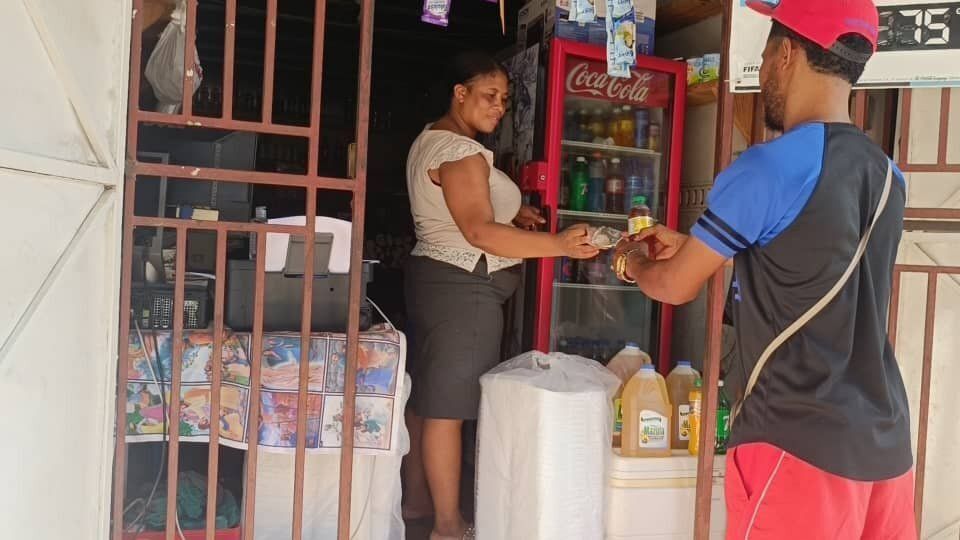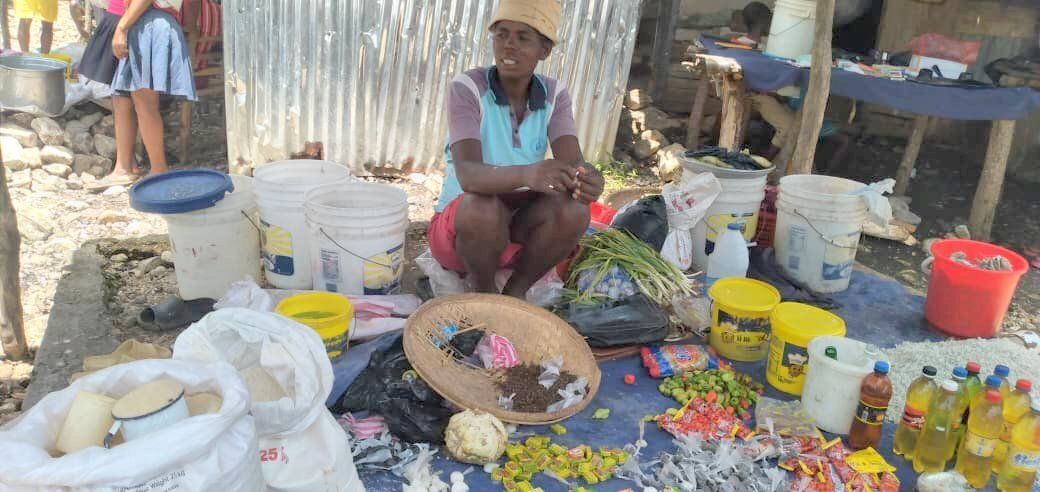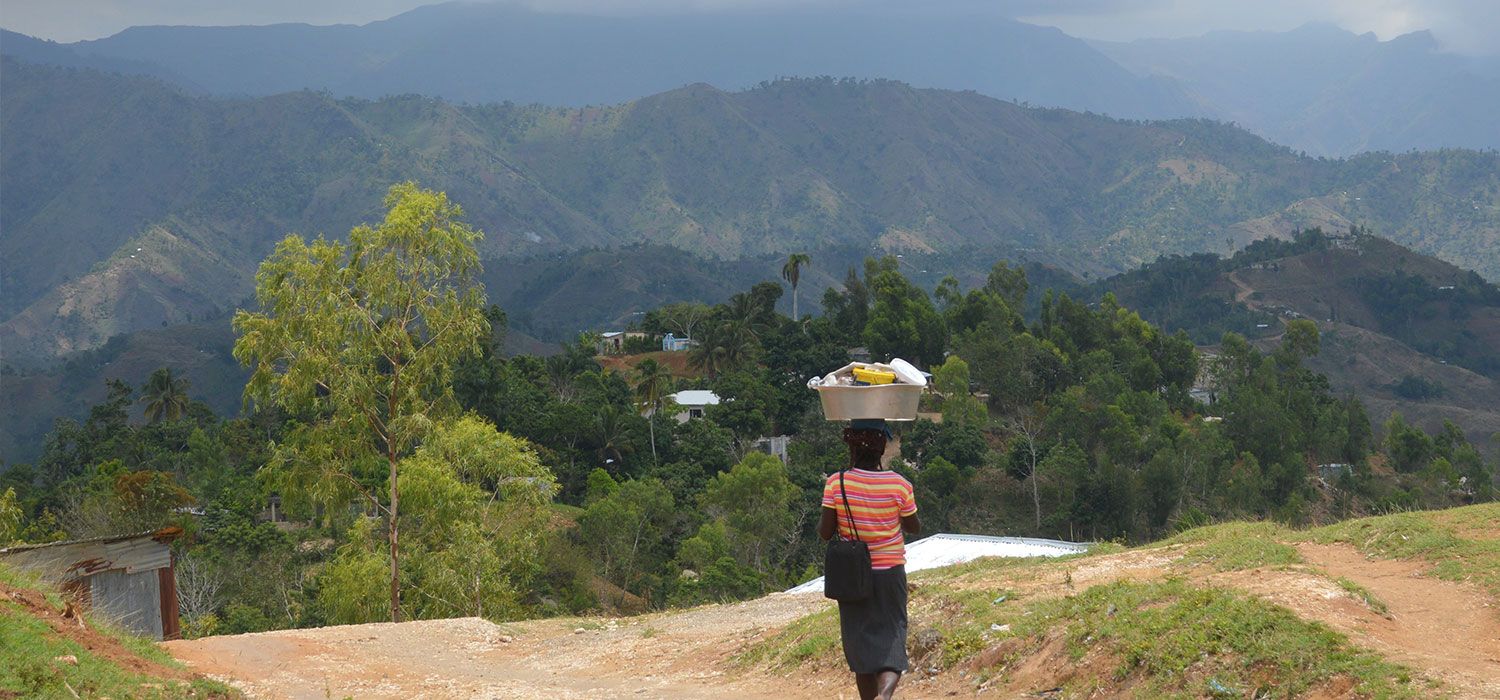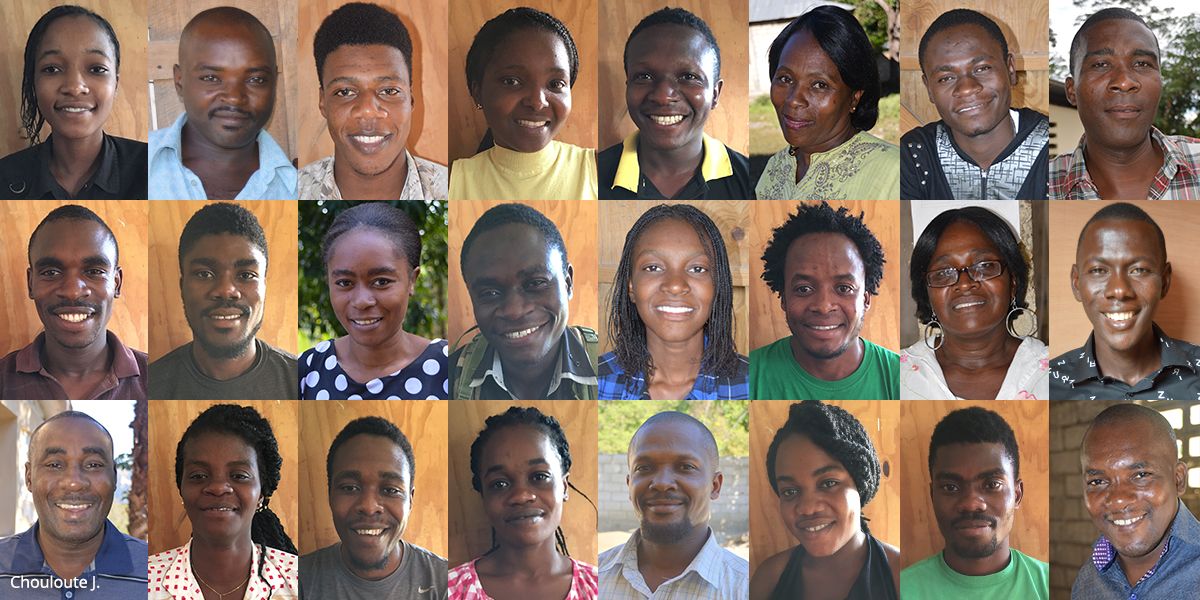Iconic women’s magazine publicizes program helping women in rural Haiti fund small businesses and farm operations
After funding more than 2,000 loans of $25 to $1,172, program enjoys 100 percent repayment rate
For more information, contact: Sue Carlson, M.D., Executive Director, Raising Haiti Foundation, 703-969-4597; marysusancarlson@gmail.com
A joint program of the Raising Haiti Foundation and the Smallholder Farmers Alliance is featured nationally this week in Ms. magazine, in the second of a two-part series that looks at a Haiti-based microcredit program providing small loans to residents of Medor and Sarrazin, two rural areas of Haiti.
The latest article published Sunday, August 18, Microcredit is Transforming the Lives of Women Entrepreneurs in Haiti: ‘Business is in My Blood,’ explores the work of the Raising Haiti Foundation in partnership with The Smallholder Farmers Alliance to fund small, low-interest loans to help women in rural Haiti finance small businesses and farm operations.
The program was started in 2020 with loans of $25 to $50 to 100 female clients in two impoverished communities, 50 in Medor and 50 in Sarrazin. To date, 2,073 loans have been funded by the program, which has a 100 percent repayment rate. By July 2024, the program had grown to a total of 426 beneficiaries who received loans in the $76-$1,132 range. By the end of 2024 the program will expand to enroll 500 clients, with an increasing loan range.
In the interview published August 18, filmmaker and Ms. contributor Jeff Kaufman interviews Benita Bien-Aimé, who lives and runs a shop a few miles from Sarrazin in the community of Mirebalais. She said the microcredit program has allowed her to transform her unprofitable business, which sold very few products, to a profitable shop featuring a wide range of goods.
The program has also taught Bien-Aimé how to run a successful business, manage inventory and handle accounting tasks. With her shop now thriving, Bien-Aimé can help provide for her family and pay to send her two girls to school.
“Today my life is totally different. My business is open, and I have many customers,” she said. The first article, “I Earn a Profit. I Can Feed My Family’” How Microcredit Lending in Haiti is Changing Women’s Lives, was published July 28. Kaufman interviews Medor loan recipient Marimène Tijuste on how an initial loan of $30.12 allowed her to expand her struggling efforts to sell salt into a successful business that sells a wide range of profitable products.
“Having more and different types of products to sell in my business has changed my life,” Tijuste said. “I have more clients. I earn a profit. I can feed my family. I can also pay for my children to go to school. Everything is new. Everything has changed for me!”
Tijuste’s most recent loan was for 35 thousand gourde, or $253.57. The Raising Haiti Foundation, which funds the Microcredit Program, is a nonprofit association created to combat poverty in rural Haiti, fight environmental degradation and provide educational and training opportunities to students and workers. Its mission is to empower the poor in rural Haiti, create wealth and improve the quality of life.
“I am grateful to Ms. magazine for shining a spotlight on the amazing accomplishments of two women participating in the Microcredit Program that Raising Haiti Foundation funds in two rural Haitian communities,” said Sue Carlson, M.D., Executive Director of the Raising Haiti Foundation. “They are two of so very many women who are working wonders because of having access to small amounts of credit. Their stories counter falsehoods about poor people and show how smart, hardworking, and resilient they are. Having the support of a credible local organization, like Smallholder Farmers Alliance, which implements the Microcredit Program, and funding from Raising Haiti Foundation to capitalize the loans, can be life-changing for all involved. These women’s stories are a strong counterpoint to the turmoil in Haiti today.”
The Smallholder Famers Alliance is dedicated to helping Haitian farmers grow, transplant and look after trees. Residents earn credits for their efforts, which can be exchanged for a range of agricultural services, including crop seeds, agricultural hand tools, training, and microcredit loans.
Timote Georges, Director and Co-founder of the Smallholder Farmers Alliance, wrote: “The publication about the Smallholder Farmers Alliance (SFA) Microcredit Program by Ms. magazine is an example of many good things that SFA is doing in Haiti. I‘m so proud to be a part of this effort and I am happy to partner with Raising Haiti Foundation, which funds the Microcredit Program and helps fund many other SFA projects.”
Ms. magazine was co-founded in 1971 by journalist and social/political activist Gloria Steinem as the first national American feminist magazine. For more than 50 years, Ms. has been an important source of feminist news. Today, it continues its in-depth investigative reporting and political analysis both in print and online. Kaufman, the documentary filmmaker who conducted these interviews, said getting to know Marimène Tijuste and Benita Bien-Aimé was “one of the most stirring things” he had ever experienced.
“Since its founding 50 years ago, Ms. magazine has continually shown how central women are to social progress around the world, and that full rights for women make a better society for everyone,” Kaufman said. “That is also the mission and the results of microcredit loans. One of the most stirring things I’ve ever experienced is traveling to seemingly remote communities in Haiti and meeting women who have been given opportunity, hope and a better future for their children thanks to microcredit programs. I’m immensely grateful to the Smallholder Farmers Alliance and to Raising Haiti Foundation for their life-changing work.”
Roxanne Szal, managing digital editor of Ms. magazine, said, “It’s an honor to hand the Ms. microphone over to these women, to hear in their own words what their typical day looks like and how their families motivate them to keep going.”
“In these interviews, the willpower and entrepreneurial spirit of these microcredit recipients jumps off the page,” Szal added. “I am joyful—but not surprised—to learn about the camaraderie and community that develops as a result of those loans, resulting in a 100 percent loan repayment rate. That’s the power of investing in women.”

Bien-Aimé at her shop in Mirebalais. (Courtesy of Raising Haiti)

Marimène Tijuste at the market with products she purchased with her microloan. (Courtesy of Raising Haiti)


